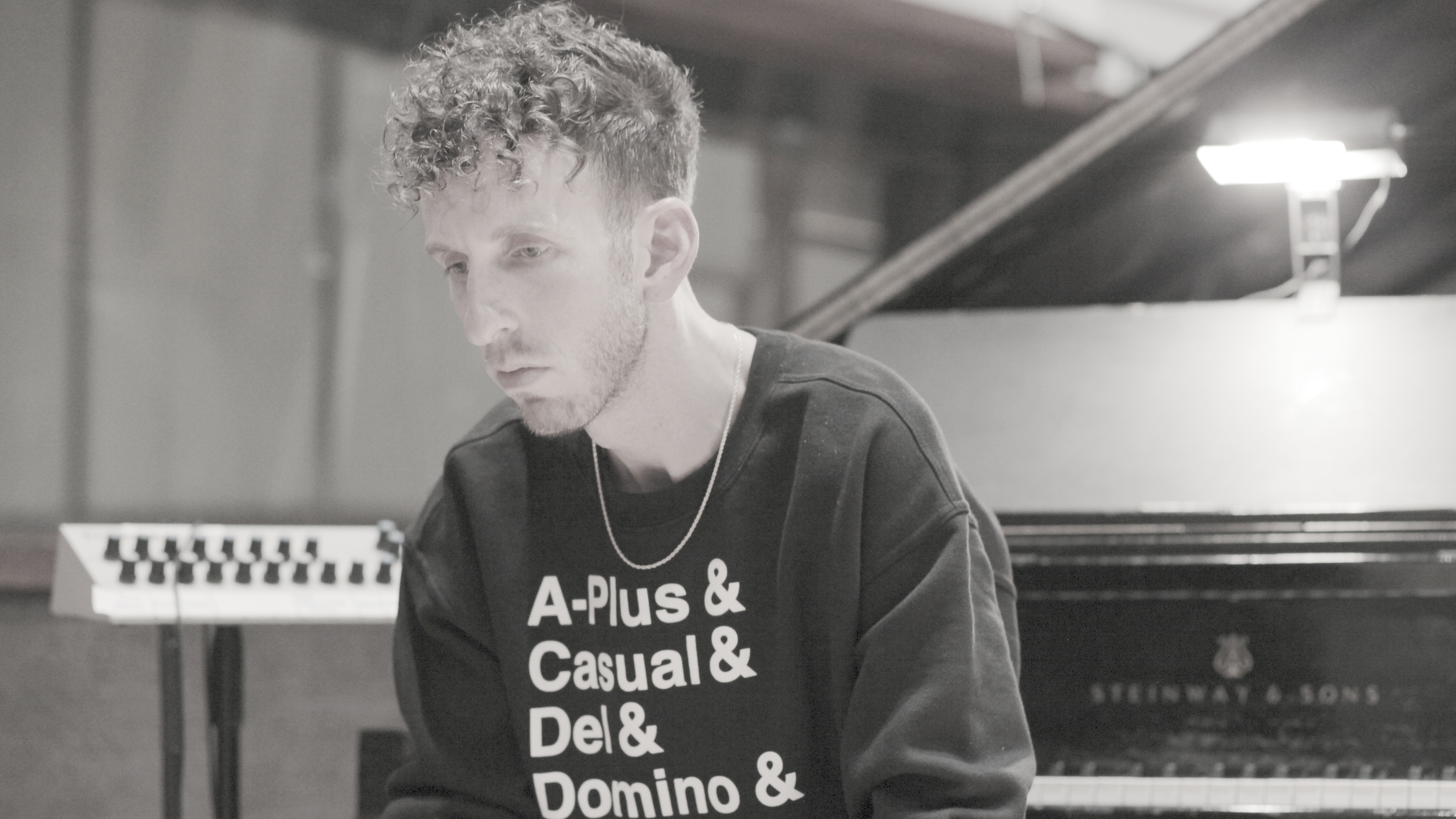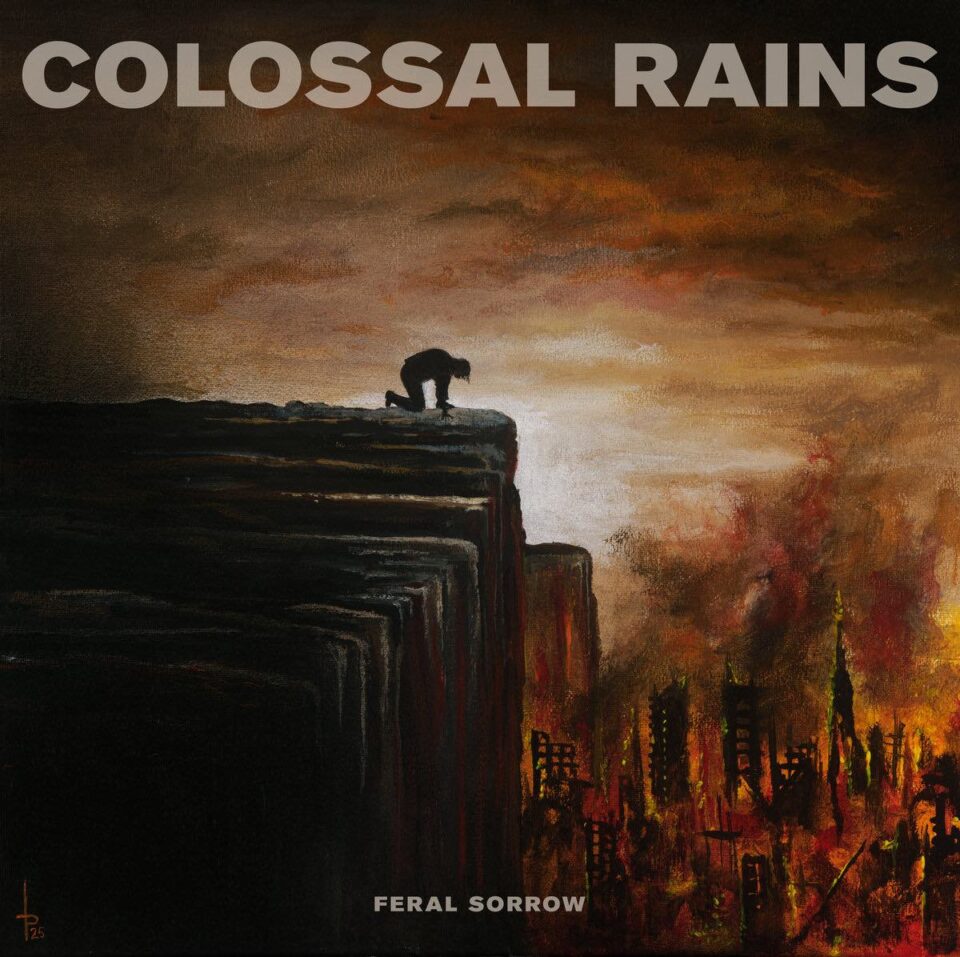Once you’ve heard of Ariel Rechtshaid, his name starts popping up everywhere. In cognitive science, this phenomenon is called the frequency illusion, but there’s nothing illusory about the laundry list of credits under the LA-based producer’s belt—that list being notable for both its caliber and its diversity.
In the last few years, Rechtshaid (pronounced reck-shide) has secured his status as the go-to indie rock producer with his work on HAIM’s Days Are Gone and his Grammy-winning production for Vampire Weekend’s Modern Vampires of the City, but you’ll also find his name in the liner notes of records by Usher, Major Lazer, Madonna, Calvin Harris, Brandon Flowers, Justin Bieber, and—in a couple of weeks—Adele, to name a few.
“I’ve never been good at repeating myself,” Rechtshaid says of his diverse roster. “Not because I can’t, or not because it wouldn’t be easier, but because it doesn’t feel exciting. What’s exciting is stumbling onto something new.”
In the spirit of “something new,” Rechtshaid has teamed up with Guitar Center to judge their fifth annual singer-songwriter competition, which gives musicians the chance to record a four-song EP with the producer. “I totally came up at Guitar Center. It’s a great place to be able to walk in and try things and buy things without pressure,” says Rechtshaid of the partnership. “I think [this program] is really generous for aspiring artists out there. I’ve always had a generous experience with Guitar Center myself. I hope it keeps helping people the way it helps me.”
We caught up with the versatile producer to talk about the contest, how he got started in production, what he’s up to now, and if winning a Grammy has changed anything (short answer: nope).
What will you look for when choosing a winner for Guitar Center’s Singer-Songwriter contest?
I can’t really name a genre or anything like that, because the music I work on is so varied. It’s not about the style; it’s about whether or not the songs are good, whether or not I like them. The “liking it” part is hard to describe. I’ll know it when I hear it. But [I’m also looking for] whether or not they feel honest. Whether I’m believing it, coming out of the artist who’s singing. Authenticity is very important. Originality is important, some sort of musical statement that illustrates who this artist is and where they’re coming from.
You were in a couple of bands before you made a name for yourself as a producer. How did you get started doing production?
I went from literally knowing nothing, having zero reference points about anything, to starting to make music for the first time. Going into the studio, it became more than songwriting. There’s the song, and then there’s the way it’s presented.
It can be very grueling and painful to try to make the best thing you’ve ever made every time.
Over time I became more obsessed with trying to translate the sound in my head into a recording, more so than being on tour or being in the spotlight. That was less of a priority for me. So I spent lots of time in the studio exploring different techniques and software and analog gear, and fifteen years later, here I am.
Was there a point where you shifted from identifying as Ariel the band member and performer to Ariel the producer?
It was over time. It started out with me just working with friends, and it really still is that way, to be honest. But the community that I came up with has sort of penetrated the mainstream a bit. It probably became official when I decided touring was absolutely not for me anymore. I was happy being home, being creative. And “happy” is a simplified term; it can be very grueling and painful to try to make the best thing you’ve ever made every time. But I felt satisfied in a way that I didn’t always, getting off the stage.
What gear did you start out with?
I had a Tascam four-track at home, really just to demo my own songs. I had a karaoke machine and I’d keep flipping the tape back and forth and kept overdubbing and overdubbing. That’s how I’d practice songwriting and arranging.
It wasn’t until I was in the studio working on a record with The Hippos that I discovered Pro Tools. It seemed out of reach because it’s this huge rig. Very “professional use only.” When they came out with the consumer version, I was all over it. It sort of changed everything.
How did your style develop?
I wasn’t necessarily making hip-hop music—I did make some—but I was around a lot of rappers. When I started making music for myself, it was band-oriented music, influenced by bands like Talking Heads, Parliament–Funkadelic, The Clash. But I was doing it in a way that hip-hop producers would do it: I was making the tracks by myself on a computer or MPC. It sort of was the beginning of my style, a fusion of the two—tracks that aren’t necessarily hip-hop but are done in that sort of way. There were pop producers and hip-hop producers and rock producers, but I was bouncing around somewhere in between all that.
And you still do.
Yeah, I do. But at the time, it felt like very uncharted territory. It wasn’t on purpose. It was just: this is what I have at my disposal. It’s just working within your own limitations. You develop your own style and sound, and you learn how to do it. Exploring every corner of whatever environment you are limited to.
There were pop producers and hip-hop producers and rock producers, but I was bouncing around somewhere in between all that.
What else are you working on right now?
The same old cast of characters. I’m working on another record with HAIM at the moment. I just finished up a couple of songs with Adele that are gonna come out on her next record. I also just finished up some work on an artist I’m kinda helping develop named Kelela. Her EP just came out, and it’s sort of a by-product of the record we’re working on that will follow.
Has winning a Grammy changed anything in your life as a producer?
It might if I cared. But I don’t.
It’s kind of arbitrary to you?
It’s not arbitrary; I’m proud of it. It makes me feel happy that the music I made for myself was recognized by the Grammy community and the music industry in general. I’m proud and happy, and that’s all you can ask for, is exposure among peers and all that stuff. It’s nice to feel supported in this bizarre world we operate in.
But what I mean is that… I won a Grammy for Vampire Weekend’s Modern Vampires of the City and I made that record for them, not for anybody else. And they were making it for their fans. So moving forward, it’s the same MO. It’s ideal when it reaches further than that and you come home with a trophy, but it’s not going to change the way I make music, it’s not going change who I work with.
It’s the same thing: head back down, head into work. Head in the books. However you say it. FL
Click here for more information on the Guitar Center Singer-Songwriter competition.







